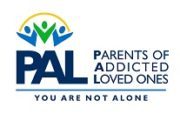Have questions about any of our PAL meetings? Find out more about how to start a PAL Group in your area, what you can expect when you attend a PAL meeting, and how you can help yourself when dealing with an addicted loved one.
How can I start a PAL Group in my area?
Because of the ever-growing need of parents everywhere, we are always open to starting new groups. We believe that churches are the ideal place for PAL and all we need is for the church to provide a room where we can meet at a time they have available.
If you know someone at a church in your area, please contact that person and ask them to take a look at our website. If, after seeing our website, they have an interest in knowing more, you can ask them to call us at 480-300-4712 or email info@legacy.palgroup.org. We understand the need for those in charge to move slowly and cautiously in deciding whether they want to host a new group on their church property.
Do I have to call before coming to a meeting, or can I just show up?
It is not necessary to call in advance at any of our meetings. You are always welcome to show up at any meeting at any time.
Do I have to attend the meetings on a regular basis?
No, we say come when you want to and, or when you need to. If you're undecided, just keep in mind that something you say at a meeting might be something that helps another member more than you'll ever know.
Is there any cost to attend a meeting?
No, there is never a cost to attend any PAL Group Meetings.
If I attend a PAL-Group meeting, do I have to talk?
No, each person has the option to participate during check-in (share what's going on with their loved one), but there is no obligation to do so, and "just listening" is equally O.K.
Can the PAL meeting help me if I’m a spouse instead of a parent?
Yes, even though the PAL Group is primarily for parents, as a spouse you will be put into a "parental role" by your addicted partner. Therefore, most of what parents need to learn, will also fit for you.
Can I come to a meeting if I’m not a parent or spouse?
Absolutely. Although the PAL meetings were designed primarily for parents and spouses, all family members and friends of an addicted loved one are welcome. In general, the more family members and friends who receive education about addiction, the better chance the addicted person has of getting help.
Is there an age limit for children who want to attend?
Because of liability issues, we have an age limit of 18 years or older.
If I have an addicted loved one and I am in recovery for drugs or alcohol myself, can I attend a meeting?
Yes, as long as you are trying to help an addicted loved one, you are welcome at our group.
Is the addicted loved one I’m trying to help invited to come to the group with me?
No, The PAL meetings are designed for families and friends of addicts and alcoholics who are struggling with their issues. There are many other groups designed for the still struggling addict and alcoholic to go to.
Does the PAL Group have sponsors?
We have no dogma and no sponsors in the PAL Group. We learn together from the educational topics and each others' experiences. Our goal is that each person be supportive of each other person as they become educated about addiction and recovery through time, at their own individual pace.
What can I do if my loved one doesn’t want help?
You can still help a loved one who doesn't want help. But, the best ways to help are not always obvious. One of the most helpful things you can do is get help for yourself, through education, support, counseling, etc. This is very important because, due to the nature of addiction, deciding on the best course of action can be tricky. For instance, sometimes you can actually help your loved one best by doing nothing. This is a complicated question that can only be answered through time, as you gain new learning from support groups and professionals in the field.
What is enabling?
Enabling is: Trying to help a person in the short-term and ending up hurting them in the long-term. For instance giving someone a loan they desperately need for rent, and they use the money to buy drugs. If you try to be smart about it, by paying the money they requested directly to the landlord, you may still be enabling. Because whatever money they had to pay their rent with, can now be used to buy drugs.
How do I know when an intervention will help?
An intervention is designed to break through an alcoholic or addict's fine-tuned denial system and be willing to accept help to change. Even though you can never be absolutely certain when an intervention will succeed, you can get input from a professional interventionist to help you assess your situation and make the best decision about it.
How can I deal with feeling hopeless?
Feeling hopeless at times, is an all too common occurrence when you are trying to help someone deal with their addiction. Even though it doesn't feel good, that hopeless feeling has an up-side. It can motivate a person to ask for help for themselves, and be more willing to try new things.
So, we say that it's not bad to find yourself feeling hopeless, but it is bad for you to stay there. In other words, hopelessness can be viewed as a signal that it's time for you to get more help.

Comments are closed.